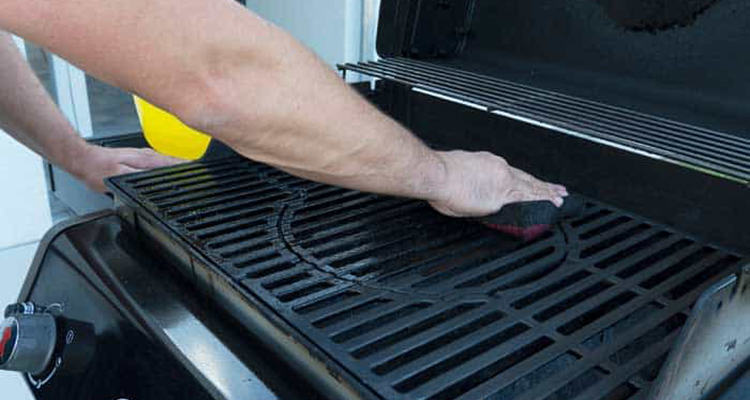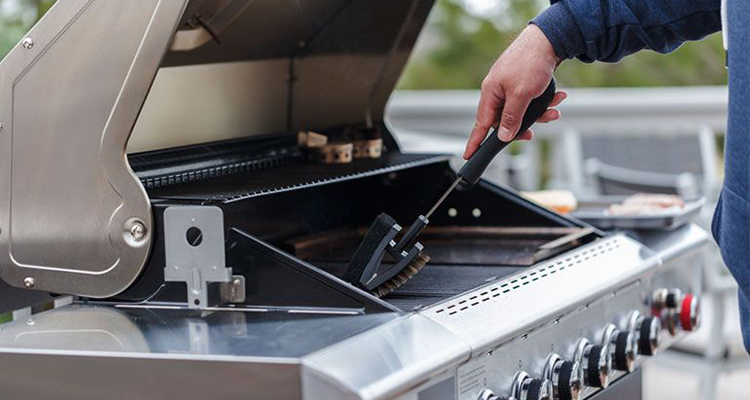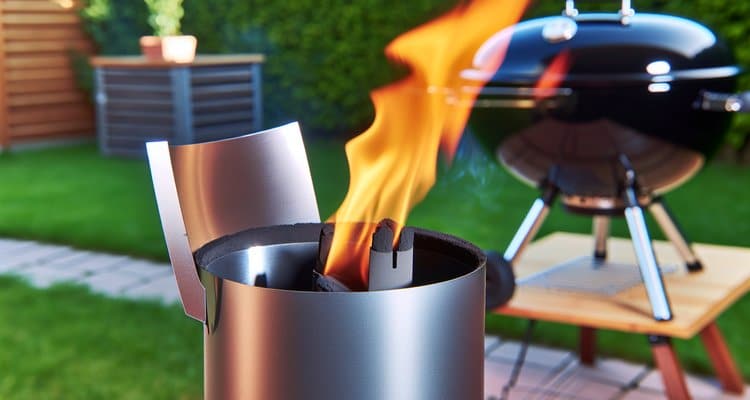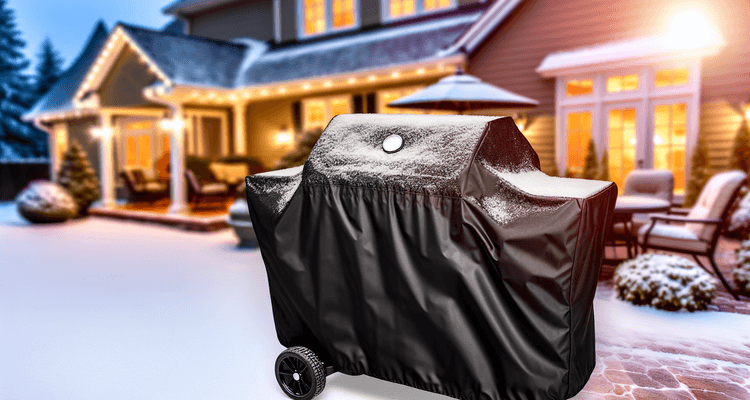
Grill cleaning and regular maintenance are crucial yet often overlooked aspects of the grilling experience. A clean grill not only looks better but also performs better, lasts longer, and produces tastier, safer food. In this comprehensive guide, we’ll cover everything you need to know about how to clean a gas grill, from quick post-cooking cleanups to deep seasonal scrubs.
Why Cleaning Your Grill is Important
Regular grill maintenance can more than double the lifespan of your grill. Proper care prevents rust and corrosion, extends your grill’s life, and ensures it heats evenly and efficiently. A clean grill prevents off-flavors and produces better-tasting food while reducing the risk of flare-ups and grease fires. Not to mention, a well-maintained grill looks more inviting and professional on your patio.
Neglecting grill cleaning can lead to several issues:
- Decreased performance and uneven heating
- Increased risk of food contamination
- Shorter lifespan of grill components
- Potential safety hazards from grease buildup
- Unpleasant flavors in your food
Neglecting grill cleanliness can also lead to the buildup of old grease, similar to a neglected grease trap, which can negatively impact grill performance and pose health risks.
How Often Should You Clean Your Gas Grill?
- After Every Use: Quick clean (10-15 minutes)
- Every 5-10 Uses: Deeper clean (30-60 minutes)
- Seasonally: Deep clean (1-2 hours)
- Before Long-Term Storage: Thorough clean and preparation for storage
For optimal performance, aim to clean your grill with a quick clean after each use and a deeper clean at least monthly during grilling season. If you’re a frequent griller, you may need to increase the frequency of your deep cleans.
Essential Grill Cleaning Tools
Before you start, gather these tools:
- Wire grill brush or bristle-free alternative
- Putty knife or scraper
- Buckets (at least two)
- Grease-cutting dish soap
- Sponges and scrub pads
- White vinegar
- Baking soda
- Heavy-duty grill cleaning gloves
- Microfiber cloths
- Stainless steel cleaner (for exterior)
- Shop vacuum (optional, for deep cleaning)
- Grill stone (optional, for stubborn residue)
Having these tools on hand will make the cleaning process much more efficient and effective. If you’re looking for a comprehensive solution, consider investing in a complete grill cleaning kit that includes all the essential tools you need in one package.
Pre-Cleaning Preparation
- ❌ ❌ Clear the Area: Remove any flammable materials, such as leaves or branches, from around your grill. This reduces the risk of accidental fires.
- ❌ ❌ Remove Debris: Clear any food debris or ash from the grill grates and grease pan. This initial step makes the detailed cleaning process more manageable.
- ❌ ❌ Turn Off the Gas: If you have a gas grill, make sure to turn off the propane tank and allow the grill to cool down completely. For charcoal grills, extinguish the coals and let the grill cool.
- ❌ ❌ Gather Your Tools: Assemble all necessary cleaning tools, including a grill brush, wire brush, dish soap, and paper towels. Having everything within reach will streamline the cleaning process.
By following these pre-cleaning steps, you set the stage for a thorough and effective grill cleaning session.
Quick Clean: After Every Use
Performing a quick clean after each grilling session prevents buildup and makes deep cleaning easier. Here’s a step-by-step guide:
- Turn off the gas and disconnect the propane tank.
- While the grill is still warm (not hot), scrape the grates with a grill brush.
- Wipe down the exterior with a damp cloth.
- Empty the grease tray if necessary.
- Brush off the burner protectors or heat tents.
- Cover the grill once it’s completely cool.
This quick routine should take no more than 10-15 minutes and will significantly reduce the effort required for deep cleaning.
Deep Clean: Step-by-Step Guide
1. Prepare Your Grill
Remove and set aside the propane tank. Take a picture of the interior for reassembly reference. This step is crucial to ensure you put everything back in its proper place.
2. Remove and Clean the Grates
Soak grates in hot, soapy water for 30 minutes. Scrub with a wire brush or scour pad. For stubborn residue, use a paste made from baking soda and water. Rinse thoroughly and dry. For cast iron grates, remember to re-season after cleaning. Apply a light coating of vegetable oil to the grates after cleaning to protect them and ensure better performance during cooking.
3. Clean the Burner Tubes and Heat Shields
4. Clean the Firebox
Use a shop vac to remove loose debris. Scrape stubborn residue with a putty knife. Wipe down with soapy water and rinse. Dry thoroughly to prevent rust. Pay special attention to corners and crevices where grease can accumulate.
5. Clean the Grease Management System and Grease Trap
Remove the grease tray and cup. Dispose of grease properly (never down the drain). Wash with hot, soapy water. Line with aluminum foil for easier future cleaning. A clean grease management system is essential for preventing grease fires.
6. Clean the Lid
Scrub the interior of the lid to remove carbonized grease. Use a mixture of baking soda and water for tough spots. Wipe down the exterior with appropriate cleaner. Don’t forget to clean the thermometer if your grill has one.
7. Reassemble and Test
Put all components back in place. Reconnect the propane tank. Run the grill on high for 15 minutes to burn off any cleaning residue. This also helps you check that everything is working correctly after cleaning.

How to Clean Specific Grill Parts
Grates
For stubborn residue, make a paste with baking soda and water. Apply the paste, let sit for 20 minutes, then scrub. For cast iron grates, re-season after cleaning by coating with cooking oil. Different types of grates (stainless steel, porcelain-enameled, etc.) may require slightly different care.
Burners
Clean ports with a wire brush or pipe cleaner. Check for even flame distribution after cleaning. Replace if there are large holes or significant rust. Properly functioning burners are crucial for even cooking and grill performance.
Heat Deflector and Flavorizer Cleaning
- Remove the Components: Carefully take out the heat deflector and flavorizer bars from your grill.
- Wash with Dish Soap: Use warm water and a grease-cutting dish soap to wash these components. This helps break down any accumulated grease and grime.
- Scrub Thoroughly: Employ a soft-bristled brush to scrub away any stubborn food debris or residue. Be gentle to avoid damaging the surfaces.
- Rinse and Dry: Rinse the heat deflector and flavorizer bars thoroughly with clean water. Dry them completely with a paper towel to prevent rust.
- Regular Maintenance: For gas grills, make it a habit to clean these parts regularly to avoid grease buildup and potential flare-ups.
Keeping your heat deflector and flavorizer bars clean ensures your grill operates efficiently and safely.
Exterior
Natural Cleaning Solutions
For those who prefer eco-friendly options, try these natural solutions:
- Vinegar Solution: Mix equal parts water and white vinegar in a spray bottle.
- Lemon and Baking Soda: Cut a lemon in half, dip in baking soda, and use as a scrubber.
- Onion Method: Cut an onion in half and rub on hot grates to remove debris.
- Coffee Soak: Brew a pot of strong coffee and soak grates for an hour before scrubbing.
These natural methods can be just as effective as commercial cleaners and are safer for the environment.
Maintenance Tips to Keep Your Grill Clean Longer
- Use a grill cover when not in use, especially in harsh weather.
- Preheat the grill before each use to burn off residue.
- Oil the grates before cooking to prevent sticking.
- Clean the grease tray regularly to prevent overflow.
- Brush grates while still warm after cooking.
- Keep a spray bottle of vinegar-water solution nearby for quick wipe-downs.
- Regularly inspect burners and tubes for clogs or damage.
Implementing these maintenance tips will make your deep cleaning sessions easier and less frequent.
Storage and Protection
Proper storage and protection of your grill are key to extending its lifespan and maintaining its performance. Here are some tips to keep your grill in top shape:
- Store in a Dry Area: When not in use, store your grill in a dry, covered area like a garage or shed. This protects it from the elements and prevents rust.
- Use a Grill Cover: Invest in a high-quality grill cover to shield your grill from rain, snow, and sun exposure. This simple step can significantly prolong the life of your grill.
- Anchor in High Winds: If you live in a windy area, consider anchoring your grill to the ground to prevent it from tipping over.
- Regular Inspections: Periodically inspect your grill for any signs of damage or wear and tear. Address any issues promptly to avoid more significant problems down the line.
By following these storage and protection tips, you can ensure your grill remains in excellent condition for many grilling seasons to come.
Troubleshooting Common Grill Cleaning Issues
Rust on Grates
For light rust, use a wire brush and cooking oil. For heavy rust, soak in vinegar overnight, then scrub. If rust persists, it may be time to replace the grates. Prevention is key – always dry your grates thoroughly after cleaning and store the grill in a dry place.
Clogged Burners
Remove burners and use a pipe cleaner to clear ports. Soak in warm, soapy water if heavily clogged. Ensure burners are completely dry before reinstalling. Regularly checking and cleaning burners can prevent performance issues.
Grease Fires
Safety Precautions When Cleaning Your Grill
Always disconnect the propane tank before deep cleaning. Wear gloves to protect your hands from chemicals and sharp edges. Clean in a well-ventilated area, especially when using chemical cleaners. Allow the grill to cool completely before applying any water-based cleaners. Never use oven cleaner on your grill – it’s too harsh and can be dangerous.
Comparison to Charcoal Grills
If you’re contemplating a switch from a charcoal grill to a gas grill, it’s essential to understand the key differences between the two. Here’s a comparison to help you decide:
- Ease of Cleaning: Gas grills are generally easier to clean and maintain than charcoal grills. The absence of ash and the convenience of removable parts make the cleaning process simpler.
- Convenience: Gas grills offer greater convenience, as they eliminate the need to light coals and manage ash. Simply turn on the propane tank, and you’re ready to grill.
- Cost: While gas grills are often more expensive upfront compared to charcoal grills, they offer advanced features and better performance, which can be worth the investment.
- Flavor: Charcoal grills provide a more traditional grilling experience and can impart a unique, smoky flavor to your food that many grill enthusiasts love.
Ultimately, the choice between a gas grill and a charcoal grill depends on your personal preferences and grilling needs. Both have their advantages, so consider what matters most to you in a grilling experience.
By understanding these differences, you can make an informed decision that best suits your grilling style and preferences.
FAQs
A: It’s not recommended. Oven cleaners contain harsh chemicals that can damage grill components and leave harmful residues.
Q: How do you clean a rusty grill?
A: For light rust, use a wire brush and cooking oil. For heavy rust, you may need to replace the affected parts.
Q: Is it safe to power wash a grill?
A: While effective, power washing can damage electrical components. It’s best to clean by hand unless you’re very careful.
Q: How do you clean grill grates without a wire brush?
A: Use a crumpled ball of aluminum foil, a nylon scrubber, or a grill stone cleaning block.
Q: Can I put my grill grates in the dishwasher?
A: It’s not recommended. The harsh detergents can strip seasoning and potentially damage the grates.
Q: How often should I replace my grill brush?
A: Replace your grill brush at least once a season or sooner if you notice worn or loose bristles.
Regular cleaning and maintenance are key to keeping your gas grill in top condition. By following these expert tips and making cleaning a part of your grilling routine, you’ll ensure your grill performs at its best, lasts longer, and continues to produce delicious meals for years to come. Remember, a clean grill is a happy grill – and it makes for happier grillers and diners too!
Happy grilling, and here’s to many seasons of perfectly grilled meals on your clean and well-maintained grill!
Contents
- Why Cleaning Your Grill is Important
- How Often Should You Clean Your Gas Grill?
- Essential Grill Cleaning Tools
- Pre-Cleaning Preparation
- Quick Clean: After Every Use
- Deep Clean: Step-by-Step Guide
- How to Clean Specific Grill Parts
- Natural Cleaning Solutions
- Maintenance Tips to Keep Your Grill Clean Longer
- Storage and Protection
- Troubleshooting Common Grill Cleaning Issues
- Safety Precautions When Cleaning Your Grill
- Comparison to Charcoal Grills
- FAQs



